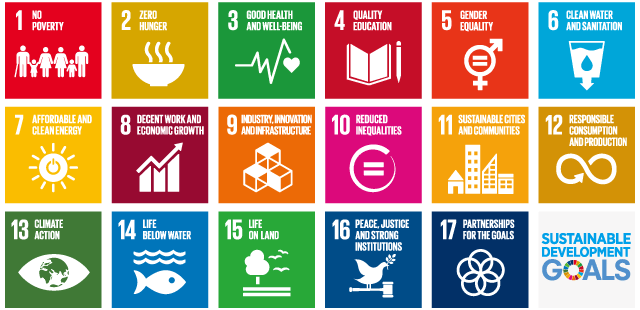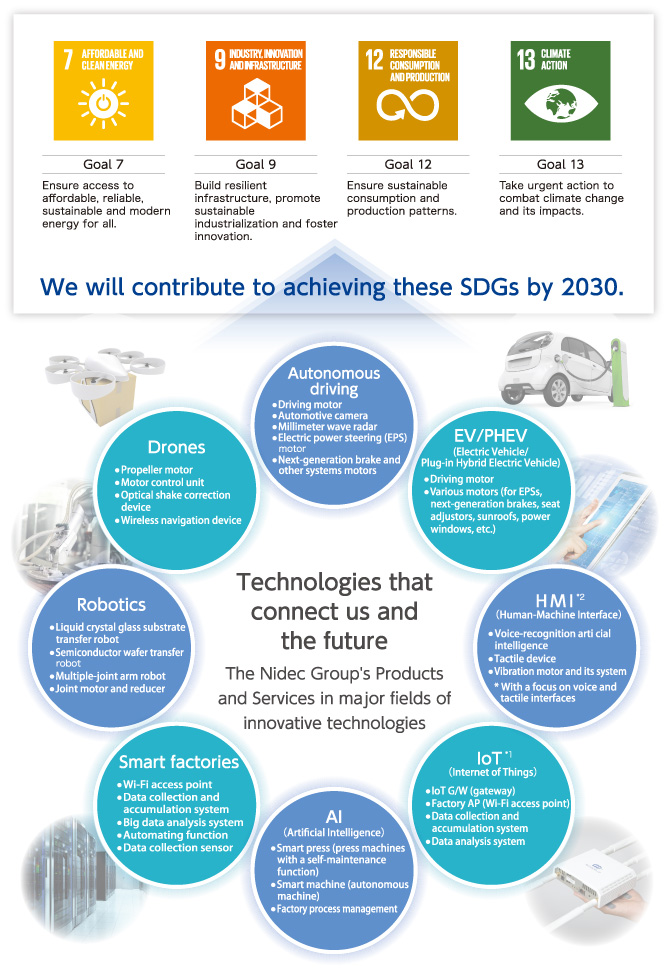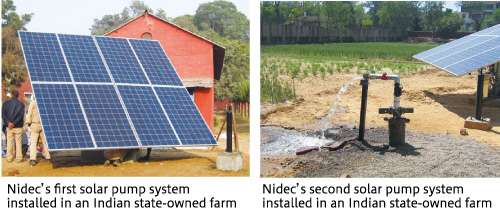Feature article
Special Feature 2017 - For Our Future
The Nidec Group creates and delivers to the world revolutionary solutions that contribute to the Sustainable Development Goals (SDGs), a set of initiatives that the international community addresses together.
Achieving the SDGs
In September 2015, the “United Nations Sustainable Development Summit” was held at the UN Headquarters in New York, where 193 member nations unanimously adopted the “2030 Agenda for Sustainable Development to Transform Our World,” and set 17 goals (Sustainable Development Goals, or SDGs) as important guidelines for the international community to eliminate poverty by 2030 and realize a sustainable society.
Realizing the SDGs urgently requires efforts not only of nations and local governments, but also of private businesses and civic communities. The Nidec Group is determined to evolve into a solutions company that supports people’s lives and the global environment with its products that “spin and move” through the achievement of our mid-term strategic goal Vision 2020. We deliver to the world solutions that realize the SDGs, with a special focus on four of those goals that are deeply related to its businesses.
Sustainable Development Goals (definition provided by the United Nations Department of Public Information)
- ■“Sustainable development” is defined as “development that meets the needs of the present without compromising the ability of future generations to meet their own needs”; and
- ■Realizing sustainable development essentially requires the three main elements, “economic development,” “social acceptance,” and “environmental protection.”


*1. IoT (Internet of Things): An online network of all interconnected objects.
*2. HMI (Human Machine Interface): A general term for things such as devices and software, through which humans exchange information with machines.
Using Solar Power to Bring Water to Agricultural Land in India

India, where more than 40% of the labor population engages in agriculture, has a major issue: There is not enough water for irrigation. In this country, approximately 35 million pumps are used to draw underground water to the land surface, and approximately 27 million of those pumps are electric, consuming nearly 20% of India’s electricity. The remainder, diesel pumps, require farmers to obtain fuel for them, while causing the problem of releasing CO2 and air-polluting substances into the atmosphere. Based on Indian Prime Minister Modi’s request to Nidec in 2014, Nidec has been developing and distributing high-performance, solar-powered irrigation pumps systems that use our high-efficiency motor, IoT, and other technologies and knowhow. By working to overcome such issues as fluctuation of power supply due to climatic changes, stabilizing the performance of motors that are installed as deeply as 50 – 100 meters underground, and controlling the amount of water released from the pumps to be optimal for agricultural crops, we will stay committed to developing India’s agriculture.


